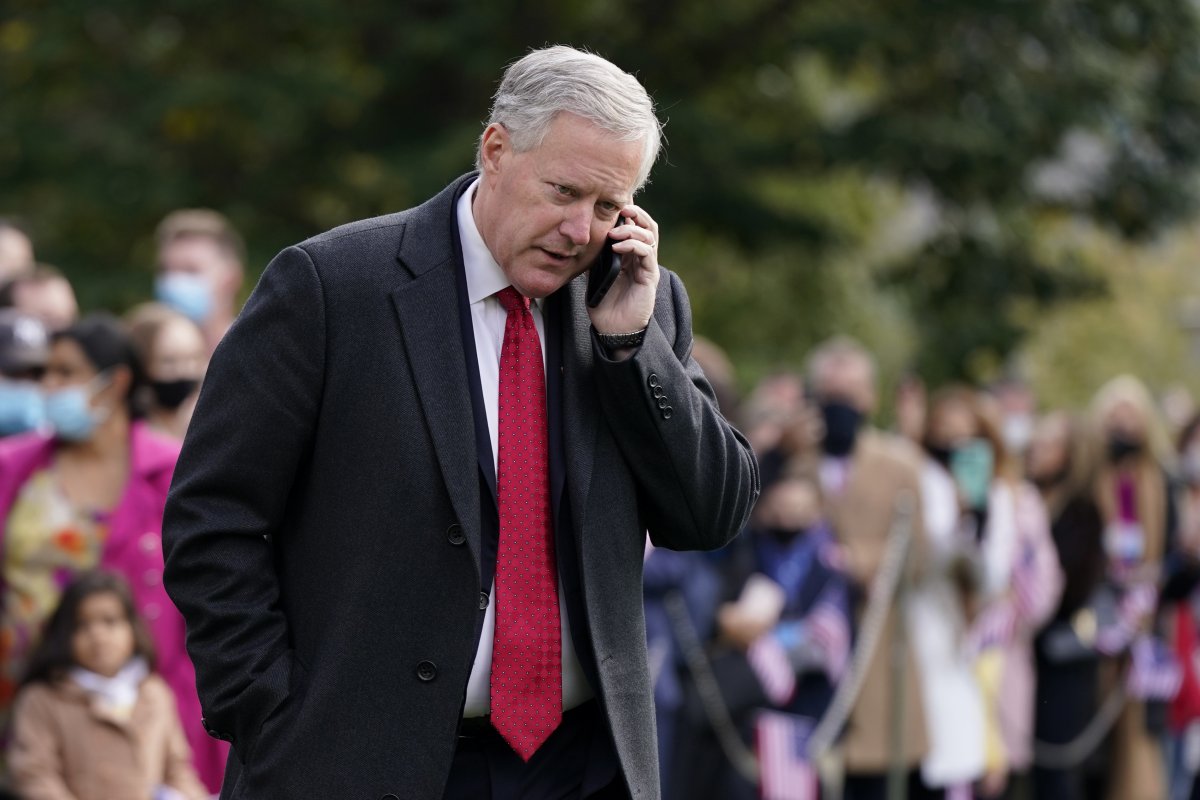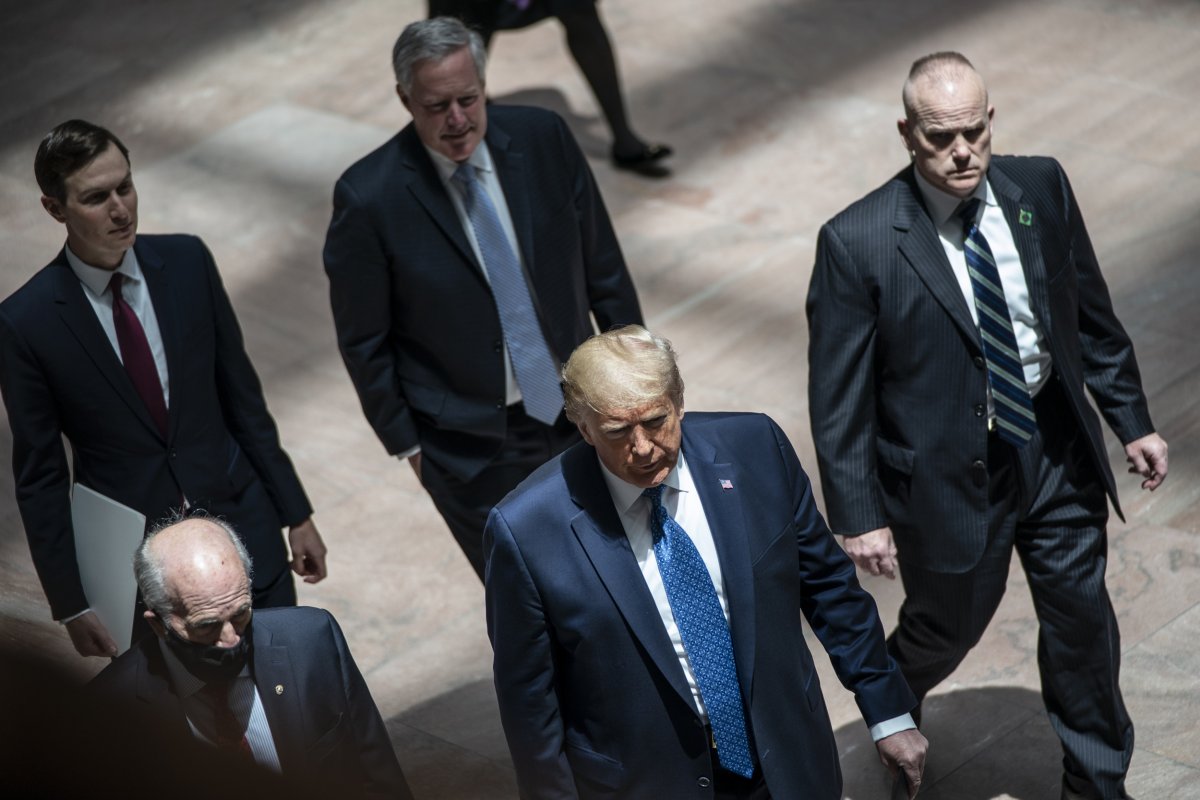The House committee investigating the Jan. 6 U.S. Capitol insurrection is providing more time to former President Donald Trump's then-chief of staff, Mark Meadows, before holding him in contempt of Congress.
Meadows has refused to testify before the committee in open defiance of a subpoena to do so. Rep. Bennie Thompson, D-Miss., said Tuesday the committee "won't rush the effort" to hold Meadows in contempt. To this point, Meadows has declined to provide lawmakers with any information about his communications on the day the Capitol was attacked.
The lawyer for Meadows is arguing his client will be protected by Trump asserting executive privilege on the matter. Meadows, unlike vociferous Trump backer Steve Bannon, is assumed to have been in direct contact with the former president the day of the insurrection. Bannon had departed the White House years earlier, allowing the committee for a workaround in his argument of executive privilege as it applied to his involvement.
The committee said it rejects the argument of executive privilege as it pertains to Meadows because President Joe Biden will waive any privilege regarding Meadows' interview, The Associated Press reported. Courts have also thus far denied Trump's attempts to stop the committee from gathering information.
"We think we are on sound footing at this point, but on the advice of counsel, we want to be able to indicate that we've made the best good-faith effort we can to get this information," Thompson told reporters on Tuesday.
He added that the panel is unlikely to hold a contempt vote before lawmakers leave town for the Thanksgiving break.
For more reporting from the Associated Press, see below.

The panel is also discussing a vote to hold former Justice Department official Jeffrey Clark in contempt after Clark appeared for a deposition earlier this month and declined to answer questions. Clark is a former assistant attorney general who aligned himself with Trump after Trump lost the 2020 election and pressured the Justice Department to help overturn his defeat.
The House panel has argued that they have questions for Meadows and Clark, as they did with Bannon, that do not directly involve conversations with Trump and couldn't possibly be blocked by privilege claims.
"We will make a similar expansive argument with Meadows and Clark we did with Bannon," Thompson said.
Meadows' lawyer, George Terwilliger, said last week that the courts should decide whether privilege applies.
"It would be irresponsible for Mr. Meadows to prematurely resolve that dispute by voluntarily waiving privileges that are at the heart of those legal issues," Terwilliger said.
One area of focus for the panel is Meadows' personal phone and email, and whether he used it to communicate with others as hundreds of Trump's supporters attacked the Capitol and beforehand.
"If in fact, he used a personal phone rather than a government phone while he was serving as chief of staff, that limits his argument that he's protected — or email," Thompson said.
Meadows, a prolific texter, was known to use a personal cell number during his time as White House chief of staff. That number, which has since been disconnected, was the same as the one he had used as a Republican member of Congress, with an area code from his home state of North Carolina.
Trump administration officials were repeatedly cited for using their personal emails to conduct government business.
In the committee's September subpoena, Thompson cited Meadows' efforts to overturn Trump's defeat in the weeks prior to the insurrection and his pressure on state officials to push the former president's false claims of widespread voter fraud.
"You were the president's chief of staff and have critical information regarding many elements of our inquiry," Thompson wrote. "It appears you were with or in the vicinity of President Trump on January 6, had communication with the president and others on January 6 regarding events at the Capitol and are a witness regarding the activities of the day."
Bannon surrendered on Monday to FBI agents after he was indicted on Friday on two federal counts of criminal contempt — one for refusing to appear for a congressional deposition and the other for refusing to provide documents in response to the committee's subpoena.
He appeared before a judge on Monday to face the federal criminal charges and is due back in court Thursday.
Bannon's lawyer, David Schoen, said his client didn't appear before Congress after Trump claimed executive privilege would apply.
Bannon spoke with Trump before the insurrection and predicted on Jan. 5 that "all hell is going to break loose" the next day.

Uncommon Knowledge
Newsweek is committed to challenging conventional wisdom and finding connections in the search for common ground.
Newsweek is committed to challenging conventional wisdom and finding connections in the search for common ground.
About the writer
To read how Newsweek uses AI as a newsroom tool, Click here.








